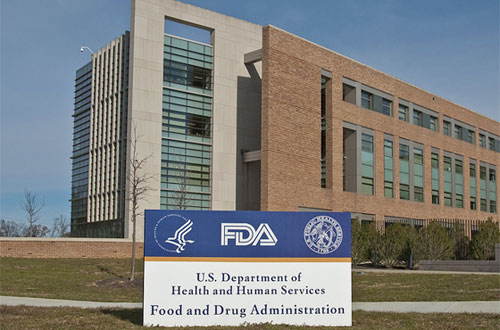
The US Food and Drug Administration (FDA) has approved the use of the decades old anti-malaria drugs hydroxychloroquine and chloroquine after preliminary data showed they had efficacy against COVID-19, the disease caused by the novel coronavirus.
The emergency authorisation comes on the back of results from a small study in France, in which four out of five COVID-19 patients who were treated with chloroquine had ‘favourable’ outcomes.
The results also demonstrated that 65 of the 80 patients receiving chloroquine treatment improved and were discharged from hospital in an average of less than five days.
This data supports earlier preliminary results from a small study of hydroxychloroquine in combination with the antibiotic azithromycin, and as a monotherapy.
Although the drug was effective on its own, when added to the antibiotic azithromycin, hydroxychloroquine was found to produce a superior response, by a significant margin.
The drug has already been touted as a potential treatment by President Donald Trump, who implied that the drug was approved for use in COVID-19 on 20 March.
However, the FDA swiftly rebuked this, stressing that the drug is still being tested clinical to determine its potential against COVID-19.
Although the drug has now been approved for emergency use, this authorisation only applies to certain COVID-19 patients, who must meet specific criteria to access the treatment.
In a statement from the US Department of Health and Human Services (HHS), the agency said it will allow for the drugs to be “donated to the Strategic National Stockpile to be distributed and prescribed by doctors to hospitalized teen and adult patients with COVID-19, as appropriate, when a clinical trial is not available or feasible”.
Sandoz, the generics division of pharma giant Novartis has already donated 30 million doses of hydroxychloroquine to the stockpile while German pharma company Bayer has donated one million doses of chloroquine.
However, the investigation of hydroxychloroquine as a treatment for chloroquine has allegedly caused shortages of the drug for its primary uses as a treatment for lupus and arthritis patients.
Meanwhile, experts have been critical of the use of anti-malarial drugs against the novel coronavirus disease, saying there is limited data supporting the emergency use of these drugs against COVID-19.
“I would like to see who at FDA’s [Medical Countermeasures Initiative] signed off on this EUA despite the total lack of scientific evidence that chloroquine/hydroxychloroquine are beneficial in the treatment of COVID-19,” said Luciana Borio in a tweet earlier today. Borio was the FDA’s acting chief scientist between 2015 and 2017.
“EUA is supposed to be issued when the evidence indicates that benefits outweigh the risks,” she added.
Meanwhile, Altasciences has completed a phase 1 study of gimsilumab, a fully human monoclonal antibody that targets granulocyte-macrophage colony stimulating factor (GM-CSF), in coronavirus patients with, or who are at risk of developing, acute respiratory distress syndrome (ARDS).
Emerging clinical evidence in COVID-19 patients suggests that GM-CSF contributes to immunopathology caused by the novel coronavirus in patients with or at risk of developing ARDS.
ARDS is a serious complication of COVID-19 which causes hospitalisation and mechanical ventilation or other life support measures.




